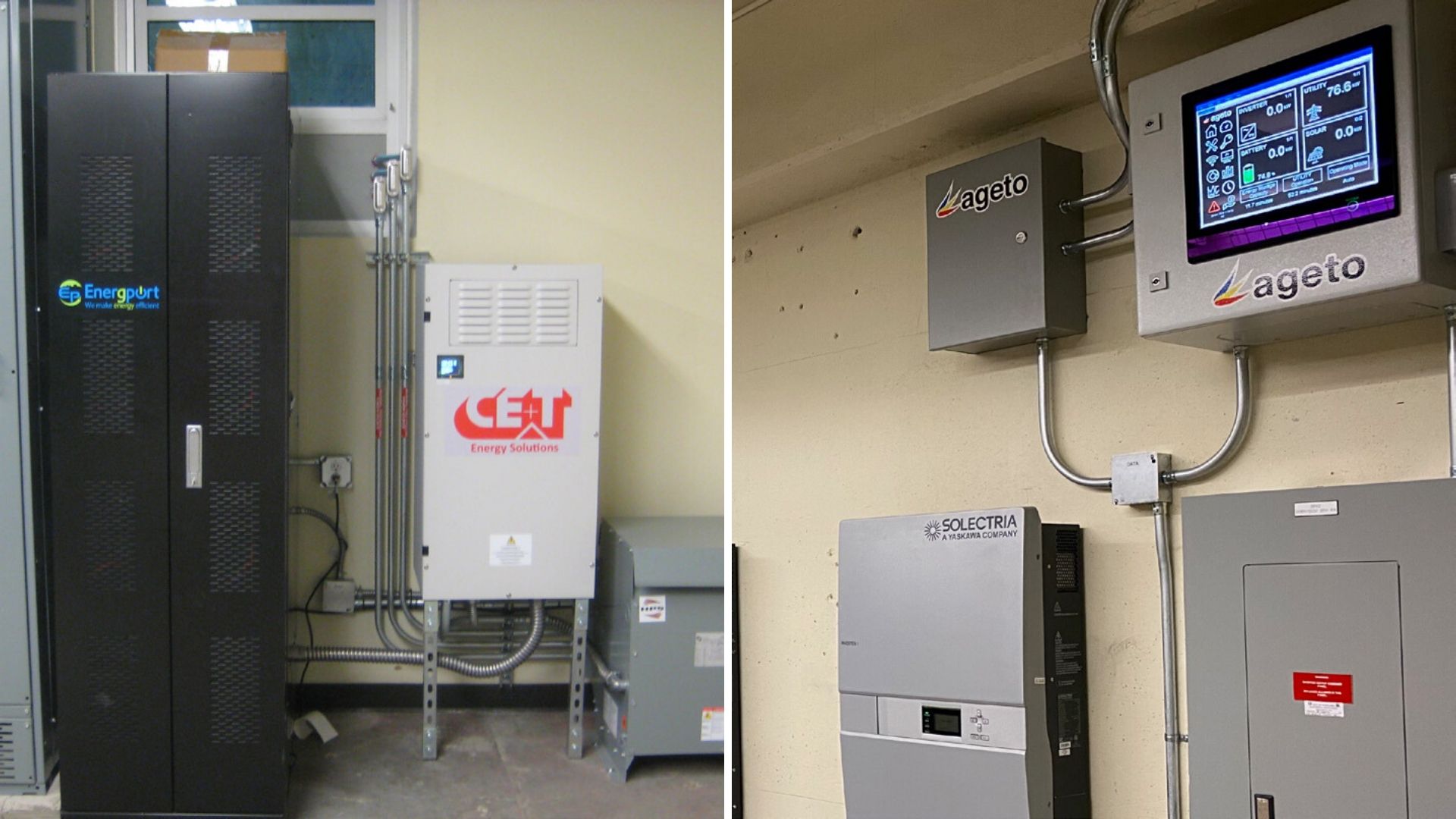The push for energy resilience peaks as Oregon prepares not only for a looming, unpredictable mega-earthquake, but also for the region’s immediate wildfire threats and citywide power outages. Among the first to integrate a solar-plus-storage microgrid is Portland’s Fire Station 1.

Laying the Foundation for Resilience
Like all of Portland’s fire stations, Fire Station 1 is equipped with a diesel generator to power the facility during grid interruptions. But generators rely on fuel, and as soon as the fuel runs out, so does power. To withstand longer outages, there needed to be a more reliable and environmentally-sustainable solution.
A partnership between Portland’s Bureau of Planning and Sustainability (BPS), Portland General Electric (PGE), and Portland Fire & Rescue (PF&R) granted Fire Station 1 funds to install a microgrid system – combining solar PV, battery storage, and a controller that enables the station to run solely on renewable energy. This microgrid became a flagship project for clean energy in Portland that the city can use to learn about the needs of critical infrastructure, test the potential for microgrids throughout the city, and educate first responders on effectively and safely handling solar-plus-storage systems.
“This novel energy management solution is an example of how we can work together to create modular, simple-to-deploy clean energy microgrids» said John Merritt, VP Marketing Solutions and Appications Engineer, CE+T Power.
“The city plans to use the lessons learned from this pilot project to implement a larger solar plus storage microgrid project at a community-centered emergency shelter location in the future,” said Danny Grady, senior energy specialist, City of Portland BPS.
Flexible Technology Simplifies Complicated Project
Microgrids today are complex, multi-component systems. For Fire Station 1, each microgrid component was strategically integrated by a team of suppliers to design a system that operates as one cohesive unit, and most importantly, provides reliable, clean energy to the facility. Overseeing the design and installation process was Alan Hickenbottom of Latitude45 and Thomas Farringer of EC Electric.
When combined, solar plus battery storage supplies the facility with ongoing renewable power on a daily basis, in turn minimizing its utility grid consumption. Controlling the microgrid is Ageto’s ARC control system, installed to coordinate and optimize the microgrid, and, since downtown Portland runs on an electric network grid that will not accept backfeed, Ageto ensures the microgrid never pushes power back onto the grid.
“Ageto’s technology is utility interactive, meaning PGE can signal our control system when they need energy, and we can discharge the battery to reduce loads on the utility from this building,” said Mike Murray, Ageto COO.
In addition to complying with PGE backfeed requirements and becoming a grid asset when called upon by the utility for demand response needs, the microgrid also operates autonomously from the grid during power outages. When this occurs, Ageto’s control system modulates the solar and battery to reduce overall backup generator use.
Connecting the solar array to the battery is a flexible CE+T Energy Solutions Stabiliti™ multiport converter, which ensures the battery remains fully charged and ready to provide power when the sun is not out and when the grid goes down.

Install, Connect, Repeat
“The first time you do a project like this, where you have several different vendors coming together, it’s going to be challenging. But, everyone involved did a great job of integrating their technologies to build a safe and reliable system,” said Jack Chen, CEO of Energport.
The coming together of the project partners and the success of the microgrid creates a clean energy formula that can be repeated in other markets to ensure microgrids are deployed in an efficient and cost-effective manner.
Project summary
Challenge: Deploy renewables-based energy solution that is grid-friendly and provides backup power.
Solution: Intelligent solar + storage microgrid manages energy flows in real-time, operates autonomously and minimizes generator fuel use.
Result: Solar + storage system delivers both resilience and clean energy optimization to fire station.
Installation summary
- Client Bureau of Planning & Sustainability; Portland Fire & Rescue
- Location Portland, Oregon
- Solar Array 30kW Silfab SLG-M 360 modules
- Solar Inverter (2) Yaskawa Solectria PVI 14TL
- Battery 60kWh Energport battery
- Converter CE+T Energy Solutions Stabiliti™ multiport converter
- Energy Management System Ageto ARC